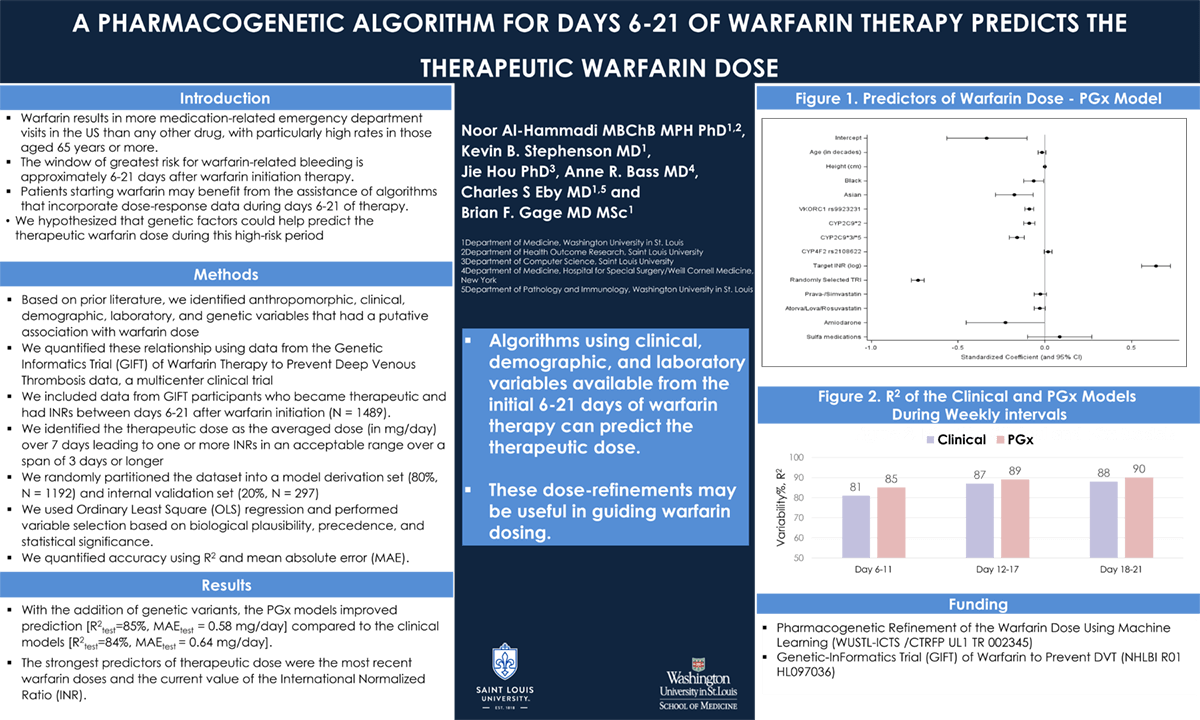
Introduction: Warfarin remains a commonly prescribed anticoagulant, use of which is complicated by significant inter-patient variability in the therapeutic dose and a narrow therapeutic index. Algorithms to refine the warfarin dose are needed, especially during days 6-21 of warfarin therapy, when iatrogenic hemorrhages are common. Objective: To develop clinical and genotype-guided dosing algorithms for days 6-21 of warfarin therapy.
Methods: We analyzed data from the Genetic Informatics Trial of Warfarin Therapy to Prevent Deep Venous Thrombosis (GIFT). We randomly split data from the 1471 patients who achieved a therapeutic dose into training (80%) and validation (20%) datasets. We offered clinical, demographic, and laboratory variables into linear regression models. We also offered polymorphisms of the following genes VKORC1, CYP2C9, and CYP4F2 into the genetic models. We used prior research, biologic plausibility, and statistical significance (Akaike information criteria) to select variables. We quantified accuracy using correlation (R2) and mean absolute error (MAE) in the validation dataset.
Results: The clinical model had an R2 of 74.0% and MAE of 0.63 mg/day; the genetic model had an R2 of 77.4% and MAE of 0.62 mg/day. The strongest predictors of therapeutic dose were the most recent warfarin doses and the current value of the International Normalized Ratio (INR).
Impact: Algorithms using clinical, demographic, and laboratory variables available from the initial 6-21 days of warfarin therapy can predict the therapeutic dose. These dose-refinements may be useful in guiding warfarin dosing.
Organization: Saint Louis University
Al-Hammadi N, Stephenson KB, Hou J, Bass AR, Eby CS, Gage BF